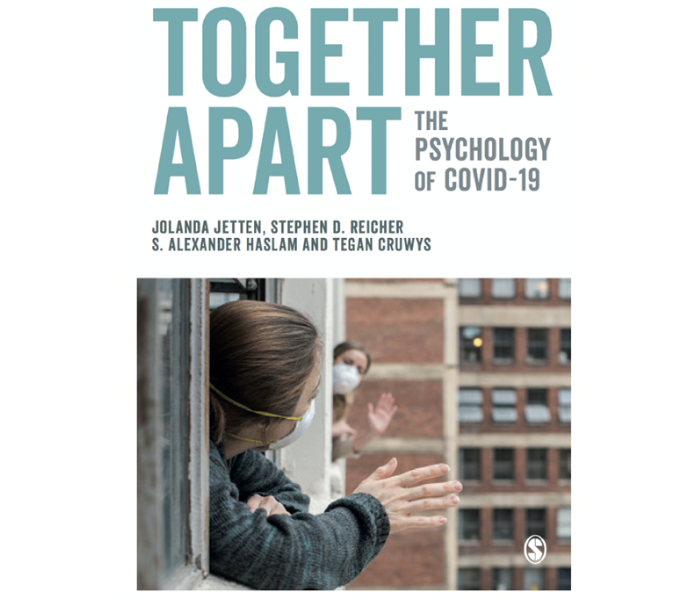Together Apart – our response to Covid-19 through the lens of psychologists


By: Nanette Fairley
September 02, 2021
A recent read looks at a wide range of topics through the lens of Covid-19. One of them is social isolation which is a key issue as we grow older. The book, written by Jetten, Richer, Haslam and Cruwys called ‘Together Apart – The Psychology of COVID-19’ was published earlier in 2021. Three of these psychologists are based at my alma mater, University of Queensland and one at St. Andrews in the UK. Prof. Alex Haslam, I have met a couple of times and he makes significant contribution in the field of social identity.
One of the things the authors flag is how isolation has impacted older people, who if they become more isolated and lonely, are more susceptible to the health risks associated with loneliness. The additional health risks of loneliness are not widely discussed and need more airtime so social connection is more often sought or offered. The authors quote evidence showing that older people living with chronic loneliness visit their physician more often, are more likely to require rehospitalisation, and more often develop multiple chronic illnesses than those who are more connected (Gerst-Ermon & Jayawardhana, 2015).
Research has also found that those without solid social connections experience greater and more rapid decline in cognitive health, mobility, and mental health than those who do not feel lonely (Kuiper et al., 2015) and their immune systems are more often compromised over time (Hawkley & Cacioppo, 2003).
The English Longitudinal Study of Ageing, a study with more than 18,000 people aged 50+ living in the community, found that older adults who lost two social group memberships following retirement had a 12% risk of mortality over the next six years (Steffens et al., 2016).
This all suggests that this pandemic, and the consequences of longer term physical social distancing restrictions, are likely to have more serious consequences for the mental, physical and cognitive health of older adults and may end in more negative health outcomes than we have considered.
But how can we turn this around? The obvious way is to build social connection for older adults. These connections should be meaningful, preferably multiple, and include
social groups. One example that has blossomed in the Australia is called the Shopping Angels. Volunteers who shop for older people and then go visit them and deliver the shopping. Technology can also keep older people connected – however this can be challenging when people have neither the resources nor the confidence to use technology.
This book starts from the premise that an effective response to Covid-19 is not just vaccination. But finding ways for people to come together and support each other as members of a community. What is happening in your community? What can you facilitate to help others stay connected?
